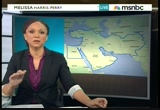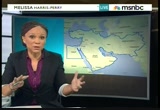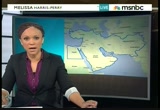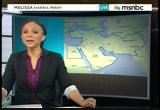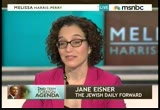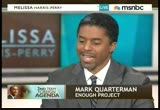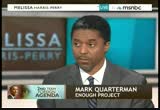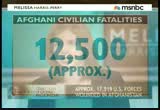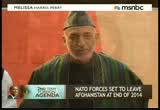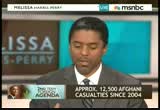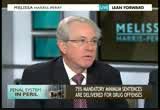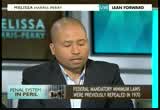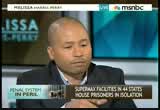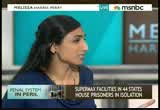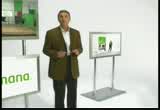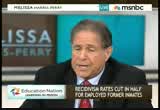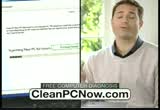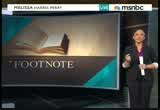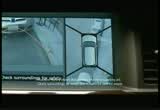tv Melissa Harris- Perry MSNBC November 18, 2012 10:00am-12:00pm EST
10:00 am
back to the news. this morning, what is on the president's foreign policy agenda for the second term? plus, a federal judge speaking out against mandatory minimums. and the one effective tool we found for real reform in prisons. but first, soldiers on the border, rockets in the air and the middle east on the brink. good morning. i'm melissa harris-perry. the current struggle between israel and hamas is a long and difficult history. would not be an overstatement to say it's among the most complicated the world has known. for context, we'll begin in 1947. the year the united nations passed its partition plan calling for the creation of
10:01 am
separate arab and jewish states. fighting broke out between the two groups and israel declared independence in may 1948. the next day, israel was invaded by jordan, egypt, lebanon, syria and iraq. but the fledgling country survived. the u.n. passed resolution 194 in december 1948 which allowed ref are geez who wished to live peacefully the right to return home at the earliest practical date. nearly 20 years later in 1967, israel pre 'em tifl struck egyptian forces after the access was blocked to the port. israel gained control over areas including the west bank and gaza strip and east jerusalem. for arabs, this was the beginning of a period of occupation by israel which remains at the center of today's conflict. now, there would be another air rob israeli war in 1973. before that, there's the
10:02 am
formation of the plo or the palestinian liberation organization which would be defined by the likes of yasir arafat. in 1978, u.s. president jimmy carter helped to broker the peace accords between saadat of egypt and prime minister ba begin of israel which paved the way for the 1979 peace treaty between those two countries. the lalt '80s saw the formation of hamas in the west bank and gaza erasing hopes. the oslo accords signed -- establishing recognition of each side between israel and the plo. years of talks followed and marred by disagreement. mahmoud abbas is elected as arafat's successor by the palestinian people. in the same year, israel withdraws from all settlements in gaz in. hamas then wins big in the elections sending a ripple of worry around the world.
10:03 am
since then, the back and forth continued with no definitive end to the conflict. let's be clear, this cribbed version of history doesn't begin to explore the complexity. in fact, i sort of picked and chose which moments of the timeline to highlight, which sa i controversial approach to the story of the middle east. even the starting point that i chose can be deemed controversial. others may begin at britain's involvement or in the 1917 balance for declaration. there are those that have gone all the way back to the biblical era. the very language that we use when talking about the middle east can be a mine field with certain words carrying hidden meanings, indicating sympathy for one side or the other. accurately and fairly and comprehend hence civilly selling the story of the middle east region is impossible in this setting. what i can tell you is what's going on right now. on wednesday, israeli defense
10:04 am
forces launched operation pillar of defense which a strike that killed the head of the hamas military wing. that was the idfs answer after months of attacks on israeli soldiers and cities. hundreds of rockets have been launched into southern israel this year to the point of being nearly commonplace. but on thursday, warning sirens went off in tel aviv for the first time since 1991's gulf war. israel, for its part, has been carrying out hundreds of air strikes in gaza and the current death toll from the latest escalation includes at least 49 palestinians half civilians and at least three israeli civilians. hamas militants have continued with rocket attacks and israel lined up thousands of troops on the gaza border while more reservist. general ban ki-moon is set to head to the region next week and reports from last night indicate
10:05 am
multiparty talks are taking place in egypt. even the nature of the meetings is unclear. president obama who is traveling in asia, had this to say about the ongoing conflict. >> there's no country on earth that would tolerate missiles raining down on its citizens from outside its borders. so we are fully supportive of israel's right to defend itself from missiles landing on people's homes. >> firm word from president obama. but president obama knows that any mandate he can claim after reelection is one focusing on domestic concerns. does he have the political capital to more deeply engage the united states in a seemingly never-ending conflict, possibly with no foreseeable end. at the table, rule a gentleman bril, chris hayes, my friend and host of "up with chris hayes" here on msnbc and jane eisner, the editor in chief of the
10:06 am
jewish daily forward and mark quarterman, research director at the enough project. thank you all for being here. so this is -- as i was saying earlier this morning, this is going to be a pretty sober conversation. i want to be clear that sometimes the topics we take on, on mhp are my wheelhouse and the things that i sort of have my fundamental point to make. today i feel more like the audience in that i feel overwhelmed by this -- these developments. i feel distressed by them. i feel, chris, like we don't have necessarily even the common vocabulary to have a conversation about what is happening. as you sort of are observing this from your chair at "up" from your position, what is it we need to know? >> oh, gosh. i thought you did a good job in the intro. i think let me say this. part of the -- there's two things we need to know.
10:07 am
one is that pal sinnians and the folks that live in gaza and the west bank exist even when there isn't violence and they're in the news and israelis and they who live, both arab and ju -- that's a primary fact that we tend to lose sight of in the american press in which we only pay attention when there is violence. the second thing to understand is that the context of this is that there are internal politics in israel that are driving strategic decisions being made by politicians and by military commanders and there are internal politics in gaza and in the west bank and those internal products are different, there are two groups that control the areas that are driving those strategic decisions that we have a tendency to say this is the intractable conflict between these peoples and they're subject to constituency and press and things do for domestic
10:08 am
purposes as much as president obama and the congress. >> this is, in part, jane, i think what happens if i begin to sort of walking back to tell the story and like if we sort of all the way back, it feels like incompetent tractable and it's about peoples. it is about politics. >> it is. you brought up a really good point. that there's been tremendous amount of division within the palestinian people. the palestinian authority in the west bank, hamas in gaza. there was a brutal civil war some years ago. it's not just that hamas won an election. they also then many hundreds of people died in that civil war to enable hamas to establish control in gaza. while palestinians i have spoken to wish fervently for a reconciliation or unity, it hasn't yet. it's because there's so many internal divisions within the palestinian community that have made this kind of unity very difficult to achieve.
10:09 am
>> mark, why then -- chris makes a good point that we tend to pay attention when the violence erupts. this becomes the moment that it takes over news shows that we start making the phone calls, all of this sort of thing. why is the u.s. necessarily such a player in this story? what is it about -- in that story that i told, i didn't tell much about our policy positions. yet, we are a critical player in all of this going on. >> that's absolutely right. the u.s. is probably the one country in the world that israel feels closest to that, to the extent that any country has influence over it, the u.s. has it. american presidents feel a need often in second terms to take on middle east peace. >> yep. >> often to their sorrow. there haven't been many successes. >> no. >> u.s. presidents and u.s. government feel the need to intervene. >> there's a story of clinton on january 2nd or 3nd just before he's going out of office waiting for yasir arafat in the oval
10:10 am
office because he's hoping that the last thing he can do in those final 15 days is to address this. >> which is an incredible miscalculation because israelis were calculating on a new government of bill clinton being replaced. no. it's also something that domestic constituencies drive u.s. presidents to participate in. but it doesn't just come from that. i mean, it really comes from a deep u.s. involvement from the start in the creation of israel. a deep concern about wanting to help israel secure itself. but also bring about peace in the middle east. i'd like to complicate this story more by bringing in a regional context. yes, there is internal politics that drives this, there's history that drives it. israel and hamas are dealing with a different regional context as well. hamas had been tolerated by but not really liked by the mubarak government in israel which is in many ways the patron of
10:11 am
palestinians in the middle east. the morsi government is more supportive of hamas. they used to be based in damascus, syria. they moved out pretty much just in time as the assad regime begins to crumble there and have found new friend in the region as they distance themselves from syria. israel is finding a region in which it has fewer friend and hamas is in a region in which it has fewer allies. growing arab frustration over lack of progress in the peace process has also driven countries in the region to hamas as well. >> this is where i wanted you to weigh in. in a post arab spring dee mock rah advertising of this region, also u.s. interests shift here. how does that new context impact what we're seeing? >> should the interest interest shift here and include actually take in consideration how the middle east changed radically,
10:12 am
with this operation in gaza it shows you that israel's strategy didn't change. take into consideration whatever take place in the middle east. and egypt. they don't have mubarak to broker any deal with them. they don't have any more -- even the jordanian king, he cannot afford to be seen in this moment with up rising in his country as the guy who speaks to israel. they have to negotiate directly and that guy is the guy they already killed. you know, i was interviewing the head of internal secret service and he said a year ago when there was a case in the public domain, he said we're negotiating with hamas today, when nathaniel said he would never negotiate with hamas, because they want -- i said what do you mean. netanyahu doesn't want any
10:13 am
political settlement with the palestinians and he will try to throw this under train whatever it will take. he's trying to take the public opinion empowering hamas. releasing 1,000 prisoners a year ago, you actually handed hamas publicity that will never end. >> we're going to stay on this and we're going to talk about the president's chile relationship with netanyahu may impact what's happening here. we'll stay on this topic when we come back. you, too! oh, cloudy glasses. you didn't have to come over! actually, honey, i think i did... oh? you did? whoa, ladies, easy. hi. cascade kitchen counselor. we can help avoid this with cascade complete pacs. over time, the other premium pac can leave cloudy, hard water deposits, but cascade complete pacs help leave glasses sparkling. shiny! too bad it doesn't work on windows. okay, i'm outta here. more dishwasher brands in north america recommend cascade.
10:14 am
but when i was in an accident... in north america i was worried the health care system spoke a language all its own with unitedhealthcare, i got help that fit my life. so i never missed a beat. that's health in numbers. unitedhealthcare. campbell's has 24 new soups that will make it drop over, and over again. ♪ from jammin' jerk chicken, to creamy gouda bisque. see what's new from campbell's. it's amazing what soup can do.
10:15 am
a wit takes some doing.sn't just happen. see what's new from campbell's. some coordinating. and a trip to the one place with the new ideas that help us pull it all together. from the things that hang and shine... ...to the things that sparkle and jingle. all while saving the things that go in our wallet. more saving. more doing. that's the power of the home depot. create a musical light show with the maestro mouse voice- activated ornament.
10:16 am
10:17 am
leads to a two-state solution is going to be pushed off way into the future. >> i'm back with my panel talking about the escalating violence between israel and hamas and how president obama can address these issues. chris, do you buy that? is this moving us away from a two-state solution which the president has been clear? >> here's what i would say. sure. yes. the hot war and people dying on both sides, i think, tends it -- a fundamental truth about politics, i think, it's true in american and the middle east. violence and war and fear empowers the most conservative reactionary elements in a society. pretty much always true. that part of your brain -- >> see post 9/11 u.s. >> the part of your brain says my kid is going to get killed is the part of your brain is not going to be into sorts of liberal pie he at thises and
10:18 am
deals. whenever there's violence, that's imperilling the peace pro -- >> american policy -- they have done the thing that has been asked which is there haven't been terrorist attacks. they have built the institutions of the palestinian state and nothing happened. from where they sit, what they have seen are increased settlement activity and no move toward peace. what are you talking about? there was no peace process beforehand despite the fact we were doing what you told us to do. >> which is a different read from netanyahu. listen to this and i promise i'll come around. >> i'm glad to see that most of the governments of the world don't fall into the false symmetry of equating the terrorist aggressors with their civilian victims. of course, israel will continue to exercise this prudence and
10:19 am
self-restraint while defending our citizens against terrorism. i am going to get both of your responses to that. >> i think it's really important to distinguish the west bank and gaza. i think many american jews, many israelis believe there should be a two-state solution and one of the biggest stumbling blocks to that is increased settlement. that's true. it's a lot more difficult to see the future in gaza when you're dealing with hamas, which has sworn continually to never recognize israel ordeal with it. our news editor went to cairo in april. >> amazing interview. everyone should read this interview. >> thank you, chris. was able to interview abu march zuk which was extraordinary. we have to say that on the one hand fact that he sat down with the editor of a jewish newspaper was amazing. however, his position didn't
10:20 am
change. >> you know what, i'm sorry, we need to understand now that netanyahu has been in government for seven years and before him and arab countries met two, three times. in 2006, they told israel we're ready to recognize you. the only condition, please withdraw from the west bank, from the occupied territories. we're all ready, all of us together. the broker of that deal was actually king abdullah from the saudi. they went on and they told ariel sharon before and the israeli response, no thank you, we don't want this. we want the status quo. netanyahu himself carried the status quo building settlements. i'm surprised to hear that jewish americans want a two-state solution. it's not -- it's not 22%. we're not giving them anything. that will lead to empowering more and more hamas. hamas is the winner of this war,
10:21 am
even if you kill 8,000, 10,000, they will get out winners. they're the only ones trying to get a reaction out of israel. it's a bad reaction. >> first of all x i'm not speaking for the israeli government, but we have to acknowledge that they unilate l unilaterally withdrew -- >> if you are a fisherman in gaza, they control electricity, water, the space. they control everything. you know, you have tunnels that goes to egypt, hundreds of miles, go all the way to egypt and smuggle all kinds of things. these missiles, they were smuggled in the tunnels together and other things. >> let me let chris -- >> when you have one government doing everything you want and you ignore them and one is in prison. you have to have a leader. the leader is there. >> there's two things. there's essentially a right wing challenge to hamas in gaza from
10:22 am
islamic jihad, other sa laugh i groups. so there's a certain dreeg to which this war consolidates their power. they're firing the rockets as opposed to not enforcing a cease-fire with the israelis. >> even with hamas, the outside and the inside. >> this goes to your fundamental point, chris. there's a politics occurring that if we see it only as a question of the peoples, then we get -- we have a two flat view of what is happening in terms of the internal contestation. >> when you talk about gaza, right, the withdrawal from gaza, if i think the israeli perspective is we withdrew, we were rewarded with rocket fire. that's what you hear from israelis. the other side is that floif gaza is horrible. i don't think this is a political statement. you have 1.7 million people living in a population squeezed into three boroughs in new york.
10:23 am
the borders are not controlled. only certain things get through. because of the blockade, you have a very flourishing black market tunnel economy which essentially means that everything that comes in is contra brand. >> we're going to go straight to this question of both of human life questions on the ground but also sort of what the west or what sort of these american viewers start to feel about how we impact this through our own domestic politics when we come back. [ female announcer ] the humana walmart-preferred rx plan p-d-p gives you a low national plan premium... so you can focus on what really matters. call humana at 1-800-808-4003. we believe the more you know, the better you trade. so we have ongoing webinars and interactive learning, plus, in-branch seminars at over 500 locations,
10:24 am
where our dedicated support teams help you know more so your money can do more. [ rodger ] at scottrade, seven dollar trades are just the start. our teams have the information you want when you need it. it's another reason more investors are saying... [ all ] i'm with scottrade. it's another reason more investors are saying... is bigger than we think ... sometimelike the flu.fer from with aches, fever and chills- the flu's a really big deal. so why treat it like it's a little cold? there's something that works differently than over-the-counter remedies. prescription tamiflu attacks the flu virus at its source. so don't wait. call your doctor right away. tamiflu is prescription medicine for treating the flu
10:25 am
in adults and children one year and older whose flu symptoms started within the last two days. before taking tamiflu tell your doctor if you're pregnant, nursing. have serious health conditions, or take other medicines. if you develop an allergic reaction, a severe rash, or signs of unusual behavior, stop taking tamiflu and call your doctor immediately. children and adolescents in particular may be at an increased risk of seizures, confusion or abnormal behavior. the most common side effects are mild to moderate nausea and vomiting. the flu comes on fast, so ask your doctor about tamiflu. prescription for flu. i'd like to thank eating right, whole grain, multigrain cheerios! mom, are those my jeans? [ female announcer ] people who choose more whole grain tend to weigh less than those who don't. multigrain cheerios
10:26 am
but lately she's been coming in with less gray than usual. what's she up to? [ female announcer ] root touch-up by nice'n easy has the most shade choices, designed to match even salon color in just 10 minutes. with root touch-up, all they see is you. at times there are things that make you feel powerless. the ongoing conflict in the middle east is one of them. we're not just citizens of the united states but of the world. what is our ethical geopolitical responsibility in situations like in? mark, i want to come to you. you work for an organization
10:27 am
that helps to bring light to the atrocities that people suffer in the world. we were sort of talking about life in gaza as we were going to break. >> i spent a fair amount of time in gaza. it is one of the most densely populated places on earth. it's extraordinarily poor. in many ways it really is an open air prison as many people have said. they don't control their airspace, borders, et cetera. it's impossible for regular economic activity to occur in gaza because of the restrictions moving in and out. i know myself physically getting in and out was a process and i wasn't driving a truck of goods in or out. there are a couple of implications for that. one implication is a military incursion into gaza does a couple of things. one, is clearly in an urban setting like gaza, it imperils who ever tries to make the military incursion. more importantly, it imperils the civilians who find
10:28 am
themselves stuck in the middle of this. it's not as if people with flee to anywhere else. they're stuck where they are. it's incredibly urbanized, incredibly built up. so this makes it extremely difficult. the other thing is does, it creates a sense of incredible frustration. there is a reason why hamas is the most powerful political entity in gaza. it's not just an organization that carries out attacks. it's not just a political party. but it's also a social services agency and provides health care and education and food and money to people. >> right. that's part of how they are therefore, empowered, pretty consistently, the language about u.s. policy towards these questions does sort of emerge only in the context of this kind of violence that we've been seeing over the past couple days. not in terms of these long-term durable realities. when you think about the american jewish community and
10:29 am
its relationship to what is happening in the mideast right now and of american citizens in general, what are our sort of ethical responsibilities, adv e advice -- visa advice. >> most are concerned about what's going on. very anxious, don't want to see a war, don't want to see further bloodshed. i happen to be speaking at two synagogues this weekend in boston. one reform, one conservative. there was recognition that there was violence and bloodshed on all sides and think mostly you're hearing anxiety. long-te long-term. there has to be a diplomatic solution. while i don't want to necessarily be partisan about it. i would just observe that 70% of american jews voted for barack obama. his attitudes towards potential
10:30 am
peace in the middle east between the israelis and the palestinian was far more positive than that expressed by mitt romney to the degree that gives you an idea where that is coming from. that part is clear. >> i'll give you the last word because we're moving out of time. our eyes are going to stay on all of these questions. moving forward, we're going to talk a bit about our other foreign policy entanglements. stay with us. the president is in thailand today as part of a three-day international trip. tomorrow he will stop in burma, making the first ever sitting president to visit the southeast asian nation. we'll focus more on the president's second term agenda and the one thing we know for sure he's going to be doing. but it's not like everyone is going to break into a karaoke jam session. ♪ this will literally probably never happen.
10:31 am
10:33 am
10:34 am
obama vowed to get done in his second term is the end of the war in afghanistan. preparations are already under way. talks began thursday between u.s. and afghan diplomats to craft the plan for continued foreign military presence in afghanistan after 2014. yet, the country remains mired in violence. on friday, a roadside bomb killed 17 civilians, most women and children on their way to a wedding in western afghanistan. the bombing was the third in less than ten days and taken the lives of afghani civilians. many are still concerned about the ability tore u.s. and nato troops to fully prepare the afghan security forces for the end of war. unfortunately, many known unknowns remain in the region. with me are msnbc contributor, rula jebreal. chris hayes, allison kilkenny, also a reporter for the nation magazine and mark courterman,
10:35 am
research director. >> what do you think is the sort of domestic politics pressure on president obama vis-a-vis the war in afghanistan? what do you think it is on this war? >> he's sort of committed himself to the 2014 pull-out date now, which sort of bit him in the end. general dun ford his choice for top commander says they're going to blow past that date. the united states has a history of staying in regions, we leave forces behind, private contractors. that's on the record. he said 2014. once that comes and goes and a majority of americans have said they don't believe the afghanistan war was worth all the cost, it's going to, i think, sort of screw him in the end. >> let me deal with on the cost question for just a second. there's two different elements of cost here. i want us to just see it. one is the u.s. time and money that has been spent in afghanistan. 11 years and one month.
10:36 am
$585 billion-plus estimated in terms of cost. the far more important is life and there's two different measures of this. one are u.s. casualties. and we're looking at more than 2,000 u.s. casualties, 18,000 people wounded. of course, and it's just irresponsible not to also report afghan deaths which are substantially more at least 12,500 people. >> there's been more enemy attacks since before the surge. when you look at the timeline in that respect, it's clear that it hasn't been worth the cost, not for the americans or the afghanistan people, as you mentioned. it's clear to an increasing number of americans that it's been a very wasteful endeavor. >> chris? >> you can really the war on terror. we discovered along the way that you can't actually go after these groups without real
10:37 am
invasion, without sending dprgrs on the ground, without killing this horrendous number. we went there thinking, we'll make nation building. there's no nation there whochlt are we talking to? karzai, the only thing that came out of his mouth when we said we will leave after 2014. he said how much money are you leaving me with and how much soldiers to protect me. we know there's a civil war. these are tribes with a tribal mentality. you need to handle them differently. >> i think the point that you've made here is always a question is what are the costs vis-a-vis what we've gained. we were talking about lincoln on the show yesterday. in terms of american lives lost, the u.s. civil war was the most expensive in terms of proportion of the population. i think many would say that war was worth it despite those costs because it preserved the union. at the end of this war, is it worth the cost? >> i agree with the mass of people both american public opinion and i would note the
10:38 am
republican convention delegates in the hall at the rnc, when essentially clint eastwood made a joke saying that not just the end part of the war, but we should not have gone into the war in the first place. when this happened, it was in the wake of 9/11. the taliban were allowing al qaeda to operate out of -- zawahiri were there. it was like 95%. it only got one dissenting vote in congress. everyone thought it was a good idea. one of the lessons of this long war is to make ourselves question that impulse. iraq was the bad war. >> that was when we lied -- >> we shouldn't have done that. consensus across the spectrum, there wasn't a lot of -- the nation objected to it. >> of course. >> it has to make us think. >> about what wars we should be
10:39 am
fighting. as soon as the al qaeda figures who had responsible response for the attack got through the tore a bora caves, the -- >> i want to bring you in. it's the problem we're thinking about war the wrong way. the idea of two states being at war with each other was just the wrong way to think about what was happening. >> that's what i was about to say. the way we think about war, we're still stuck in many ways in a world war ii mentality. that you fight a war, you conquer the enemy, there is an unconditional surrender. >> you leave bases behind. >> and you've won. it doesn't look like this in afghanistan. chris, you're absolutely right. in effect, the initial mission ended within months after the invasion. but we then continued to try to somehow build an afghan government that would be representative of the people and be effective. >> democracy is a bizarre
10:40 am
notion. >> we a -- the last election where karzai won, we're fraud. we pushed that through. not only that, we discovered that bin laden was protected by our ally that we actually finance with billions of dollars. >> in fact -- that's where we're going to come back to. i immediate to have a conversation about drones. that's why you are here. if we're fighting the wrong kind of wars, how does the sort of policy of drone attacks fit into the new kinds of wars that we're fighting when we come back. health care system spoke a language all its own with unitedhealthcare, i got help that fit my life. so i never missed a beat. that's health in numbers. unitedhealthcare. a wit takes some doing.sn't just happen. some coordinating. and a trip to the one place with the new ideas that help us pull it all together. from the things that hang and shine...
10:41 am
10:43 am
but i still have a runny nose. [ male announcer ] dayquil doesn't treat that. huh? [ male announcer ] alka-seltzer plus rushes relief to all your worst cold symptoms, plus it relieves your runny nose. [ sighs ] thank you! [ male announcer ] you're welcome. that's the cold truth! over time, as codes of law sought to control violence within groups, so did philosophers and clerics and statesmen seek to regulate the destructive power of war. the concept of a just war eme e emerg emerged, suggesting that war is justified only when certain conditions were met. if it is waged as a last resort
10:44 am
or in self-defense. if the force used is proportional and if, whenever possible, civilians are spared from violence. >> that was the president in january 2009 as he received the nobel peace prize. making perhaps the clearest sort of defense of a just war position. it felt very sort of professorial moment. yet, the question of drones emerges as the president moves on into his second term and drones have become a tag line that happens at the end of a conversation with progressives talking about the president and say i'm happy about the affordable care act, yes to credit cards being controlled, but what about drones and so that's the question here. what about drones? the president using drones far more than george w. bush did. make a case to me about why they're problematic. i'm not sure that i agree.
10:45 am
>> it damages america's long-term relationships. obama was the preferred candidate in all but two countries. israel and pakistan. pakistan was largely because of this issue of drone strikes. in america, we don't talk about the on the ground consequences of drone strikes. even when obama and -- a lot of fuss about that which was extraordinary. the consensus that they can kill people including americans and a 16-year-old child. that's considered legitimate. at the same time, drone strikes are used as a recruitment tool. they destabilize regions. they are largely unaccountable. you can kill somebody and there's not an investigation about that. there's not a trial leading up to it. this those terms, that's why drone strikes are destructive for the long-term relationship.
10:46 am
they to more or less -- the other two were about how they create long-term policy implications for those with whom we have separate interests and the other is whether or not they're extrajudicial. >> they're intertwined. >> i don't think drones are the issue. the policy that's being waged. strategic policy is, secret war. and a kill list. there's a list of people that jasoc has and they can go and kill those people. if you want to say is this policy working. there are something like nine names. now there are thousands. we kill more people and the list gets longer. >> uh-huh. >> when you're talking about why are we in afghanistan? we're in to fight the people in afghanistan. why do we have a kill list. there's more people that have to be killed. what is the outcome. if -- this is a strategic
10:47 am
question. we're taking people off it and more names being added. where exactly does that end up? that's one question. second of all, is the legal question. we killed a 16-year-old awlaki, right? >> he's got a facebook page. killing an american citizen is a big deal. >> unless you do it on the streets of chicago or new orleans. i guess for me, my response is always a little bit of like, oh, yeah? would you like me to show you the american state killing american kids? but we -- in other words, i'm not sure that there's been no public accounting in the sense that the very fact that we can call his name and that when we say there is a public recognition of it. >> here's the difference. if a kid in the bronx as happened, gets killed by the nypd in his house while he's in his bathroom, the facts around that are not behind the wall of
10:48 am
secrecy that guards the national security state. those are squarely in the public realm and there's going to be an accounting and possible judicial process. what happens is by definition, secret and not subject to democratic -- >> every debate and every discussion, this is a new method of war. this is something that we start hearing of and talking about recently. so even the legal way around it has to be assessed. plus, you were talking about our allies and strategies. we've been giving the pakistani and afghani governments billions of dollars in the last tep years and we gave them unconditionally. we were giving the army the billions of dollars, the army was closed in on the talibans, financing them, they were actually arming them and giving them information about where are we operating. we have to change strategy. use drones and as citizen who lived in a war zone, i have to tell you, i'd rather million
10:49 am
times drone attacks and even if that list is 1,000 than have hundreds in iraq and other places that are killed. >> oftentimes that's a false choice. it's not either/or. >> you have a double strategy. you cannot have only one. let's remember, in somalia and libya, they worked. >> the troops on the ground can also bring certain kinds of human rights violations. >> they can bring certain kinds of human rights violations with them. rape and abuse. just to say that it's not as though between the false choice of troops and drones that there is -- that one gets rid of potential human rights violations. they both bring them. >> we're talking about apples and oranges to a certain extent. the drone, i think, as chris said is yes it's a new technology. relatively new technology. but it's used for an old purpose. that purpose is assassination. the question -- >> for me at least as a lawyer, how the legality of carrying out these assassinations.
10:50 am
it's one thing to cite young awlaki but he was killed in a successful attempt to kill his father, also an american citizen. >> he was already -- >> two american citizens, for whom capital punishment was carried out. >> without due process. >> without due process. when a young man is killed in his bathroom in the bronx, you can hold people accountable. that's generally not due to an order from above or from the police chief. >> that was the story in the u.s. that was the thing that we had -- that we as a nation said this is unacceptable. >> let me say this. >> i'm sorry. this guy authorized the killing of other americans. it's treason. >> we're going to take a quick break. when we come back, a bit more on this question but also on the issue of benghazi. the potentiao more in business. by earning a degree from capella university,
10:51 am
you'll have the knowledge to make an impact in your company and take your career to an even greater place. let's get started at capella.edu. can i still ship a gift in time for christmas? yeah, sure you can. great. where's your gift? uh... whew. [ male announcer ] break from the holiday stress. ship fedex express by december 22nd for christmas delivery. by december 22nd online outfit piccolo headphones buy now broadway show megapixels place to sleep little roadster war and peace
10:52 am
deep sea diving ninja app hipster glasses 5% cash back sign up to get 5% everywhere online through december. only from discover. [ male announcer ] marie callender's puts everything you've grown to love about sunday dinner into each of her pot pies. tender white meat chicken and vegetables in a crust made from scratch. marie callender's. it's time to savor. in a crust made from scratch. and need to get my car fixed? progressive makes it easy, because we give you choices.
10:53 am
you can pick where to get your car fixed, we can cut you a check, or, at our service center, we take care of everything for you. [ relaxing music playing ] [ chuckles ] -whew, so many choices. -take your time. -the service center. -okay. giving you choices -- now, that's progressive. call or click today.
10:54 am
on friday david petraeus gave testimony in the closed-door meeting with congress on the attack on the attack in benghazi two months ago. while the questioning by members of the house and intelligence panels focused on what the cia knew and when petraeus' resignation has raised concerns about whether any classified information was compromised during his personal affair at the center of both incidents. it's a level of institutional distrust that petraeus embodies. once considered the architect of success in our foreign wars, it's a deeper failure of power. chris, i want to ask you about this. as we were talking about the drones and both you and mark pointing out that it's more about the kill list and the policy of assassination. i heard allison say during the break. thinking about a republican with that list, is the real issue the failure of elites? >> i think in the petraeus, i think there's two things in
10:55 am
petraeus. there's the surveillance state aspect of it. why was the fbi raiding his e-mail and what is the threshold for that? then i think the way in which the mythology that david petraeus cultivated around himself. it was a combination of performance in the battled field, i'm not the best judge of this, substantively quite good along with a savvy way of getting the press to go along with the story he was telling about david petraeus. one of the things we're seeing in the context of this decade is the military is the most trusted institution in american life. part of that has to do with the military divide, tom ricks was saying 1% of the people population fight all of the wars, 80% when you don't count family members, don't care. a lot of it is not registering in the american public's mind. when that detachment happens, the distance allows us from a
10:56 am
safe move to say i trust the military. the people who are in the military have extremely complicated questions about whether or not to trust the military because people who are in any institution, public school teachers have complicated feelings about the public schools. the more removed from an institution, the more it exists as a cartoonish flawed or -- the less we know about guts and works, i think that is what this scandal is about. is about the fact that we have increasing distance and it's created a way of talking about the military as something separate from american life during the same period of time which we're waging the longest war. >> chris, i'm thrilled that you came to hang out with me in nerdland. thank you to my entire panel. we are shifting gears from the most depressing international topics to the most depressing domestic topics because when we come back we'll be talking about a major election outcome that got very little attention but is critically important about an institution in our nation. we're talking about prisons when
10:57 am
we come back. thanks, everybody. with the spark cash card from capital one, olaf gets great rewards for his small business! pizza! [ garth ] olaf's small business earns 2% cash back on every purchase, every day! helium delivery. put it on my spark card! [ pop! ] [ garth ] why settle for less? great businesses deserve great rewards! awesome!!! [ male announcer ] the spark business card from capital one. choose unlimited rewards with 2% cash back or double miles on every purchase, every day! what's in your wallet?
10:58 am
that was me... the day i learned i had to start insulin for my type 2 diabetes. me... thinking my only option was the vial and syringe dad used. and me... discovering once-daily levemir® flexpen. flexpen® is prefilled. doesn't need refrigeration for up to 42 days. no drawing from a vial. dial the exact dose. inject by pushing a button. flexpen® is insulin delivery... my way. levemir® (insulin detemir [rdna origin] injection) is a long-acting insulin used to control high blood sugar in adults and children with diabetes and is not recommended to treat diabetic ketoacidosis. do not use levemir® if you are allergic to any of its ingredients. the most common side effect is low blood sugar,
10:59 am
which may cause symptoms such as sweating, shakiness, confusion, and headache. severe low blood sugar can be serious and life threatening. ask your healthcare provider about alcohol use, operating machinery, or driving. other possible side effects include injection site reactions. tell your healthcare provider about all medicines you take and all of your medical conditions. get medical help right away if you experience serious allergic reactions, such as body rash, trouble with breathing, fast heartbeat, or sweating. with flexpen®... say good night to vial and syringe. ask your doctor about levemir® flexpen. covered by 90% of insurance plans, including medicare. find your co-pay at myflexpen.com.
11:00 am
welcome back. i'm melissa harris-perry. amid all the uproar about the re-elected president and the historic number of women in congress and the legalized marijuana and the same-sex marriage victories, another major shift on election day received relatively little fanfare. voters in california approved a ballot measure to reform the state's notorious three strikes law. one of the strict he's sentencing policies in the nation. under the law, if a defendant has two serious convictions, a third conviction for any felony automatically resulted in imprisonment 25 years to life. that meant that a crime like shoplifting could earn the offender a life sentence. under the revised law, a life
11:01 am
sentence goes into effect if the third felony is a violent crime. california's decision is a long overdue movement on the practice of imposing the heaviest sentences for the lightest of crimes. unfortunately, there's been much less progress when it comes to u.s. drug policy and reform around mandatory minimum sentencing. the 1986 anti-drug abuse act was passed after the death of university of maryland player len bias from a drug overdose. it started by tip o'neil of making a demonstration of being tough on crime. it was intended to prosecute high-level drug dealers. what it actually did was to ensnare low level offenders for small quantities of drugs below the amounts sold by large scale traffickers. more than 20 years later, we're living with the unintended consequences of that law and others passed by states.
11:02 am
hundreds of thousands of nonviolent, low-level drug offenders, serving long prison sentences without the possibility of parole. 75% of mandatory minimum sentences today are given to people convicted of drug offenses in the more than two decades, mandatory minimums have tripled the amount of people in federal prisons with over half being incarcerated because of drug crimes. there's no causal proof that mandatory minimums do anything to reduce crime. i want to say that one more time. there's no causal proof that mandatory minimums do anything to reduce crime. what we do mow is that these laws lead to overcrowded prisons, burdens the cash-strapped states with the cost of housing low-level offenders and block the power of judges to deliver a punishment that fairly fits the crime. that frustration inspired one such judge to break the judicial silence around public policy
11:03 am
issues and to speak out about this. in a column, iowa judge mark bennett wrote "if lengthy mandatory minimum sentences for nonviolent drug addicts actually worked, one might be able to ration ool lies them. there's no evidence that they do. i've seen how they've left children parentless and aging and irn -- they destroy families and fuel the cycle of poverty and addiction." it's true that the laws have outlived their purpose. if ever they served their purpose at all. it's also clear like in california, that it's pastime that we do something to change them. at the table with me, former commissioner of the new york city department of correction, glenn martin, formerly incarcerated and now vice president of public affairs for the fortune society. valerie core, the director of a new documentary about prison called the worst of the worse and a fellow at the yale law school and the author i quoted. mark bennett, united states
11:04 am
district court judge for the northern district of iowa. i want to start with you. thank you for being here today >> thank you for having me. >> part of what these laws did and have done is put prosecutors rather than judges in charge of our system. >> that's true. you're always going to have discretion in sentencing. the passage of the united states sentencing guidelines in 1987 took discretion from judges and gave it to prosecutors. >> yeah. >> the effect of that is many prosecutors are re-elected. they have a personal, professional, democratic incentive to incarcerate as many people for as long as possible. >> that's been my experience. i mean, it's -- the prosecutors have been a growth industry. in my district, northern district of iowa, when i was appointed by president clinton in 1994, i believe there were seven assistant u.s. attorneys. we now have 28. >> so we were talking earlier about the question of the cost of the war in afghanistan and
11:05 am
the lives lost and the amount of money that we've spent. you know, you can always balance that cost against a benefit if there is in fact a benefit. the cost of the so-called war on drugs has been an enormous human cost as well as cost to the states. is there a benefit on the backside? have we won something on this war on drugs? >> i believe it's a law of diminishing returns. a certain amount of imprisonment is always going to exist. we're well beyond that in the united states. we're spending probably in the range of $80 billion a year. imprisonment is a public investment with a very low return on investment. we're addicted. we're binging on imprisonment in this country. but the tide has begun to change for the first time in the last two years. the number of people imprisoned in the united states has plateaued and starting to come down as places like here in new york, in large measures because of efforts by glen martin, the
11:06 am
rockefeller drug laws which were more draconian than the federal guidelines reversed and the number in people in prison reduced by 20,000 people. rockefeller drug laws and the president signing the fair sentencing act, which was meant to begin to reduce that powder versus crack cocaine disparity. are we moving in the right direction or still just in a circumstance of our addiction to imprisonment as a public policy? >> i think these are all steps in the right direction. congress and the president recognized inequity in the crack cocaine sentencing disparity. when you identify it, you get rid of it. you don't reduce it. we're hoping to push the administration and congress to take another look and to eliminate the disparity altogether. rockefeller drug laws became the model tore the nation. as you said earlier, it didn't take away discretion across the board.
11:07 am
it removed it from judges and handed it to prosecutors. you end up in a situation where in the federal system, for instance, 96% of cases are people pleading out. if you're facing a considerable amount of time, whether guilty or not, you're incentivized to take a plea. >> we can say a lot of positive things about the department of justice around things like civil rights issues and housing issues and that sort of thing. they've been under strong critique for their continued role in perpetuating federal incarceration rates. >> if you look at last year's budget, for instance, while other states are grapple willing with -- we're projected to grow. while we have the second chance act pushed by congress and bipartisan support, unfortunately, you have an administration while convening a new counsel, we need to look more on the front end and figure out why so many people are going in, in the first place.
11:08 am
>> in the first place. >> the interesting thing about the growth and the number of people in the federal prisons is driven by two things. one is the increasing number of people who are being prosecuted for immigration law violations. the fastest growing number of people admitted to the federal prison system is as a result of immigration law violations and the second, of course, is the growth in the federalization of what used to be state and local crimes. crime used to be a state and local responsibility. it's become federalized. >> there's an enormous cost associated. >> they're staggering. we have 2.3 million people ins cars rated, more than any other country in the world. to bring it home, i've spent the last year working with a team of law students at yale law school on a film called the worst of the worst. we spent an enormous amount of time with former inmates, grew up on the streets of hartford,
11:09 am
got caught up with the wrong crowd, caught for selling drugs. for those who can't adjust, they get punished by being sent to super max prison. for several of them, i've watched them live out the consequences of that psychological damage of being held in solitary confinement, consequences they'll live out for the rest of their lives. i can't help but wonder if in the first instance a judge could assess the entire person in front of them. their particular story and struggle. their capacities to change rather than giving in to mandatory sentencing if their futures could be different. >> would you agree -- i have a little bit of nervousness about assuming that judges are necessarily better at the use of discretion. do we end up with a different sort of format of crime and punishment when we have judges rather than prosecutors with the discretion in the system? >> i think so. i think it's fairer justice. i've sentenced over a thousand
11:10 am
people to mandatory minimum sentences. the vast majority in drug cases, the vast majority of which did not deserve a sentence anywhere near the length they do. people don't understand the incredible length of sentences. in the midwest, it's methamphetami methamphetamine. five grams gets you a five-year mandatory sentence. 50 grams gets you a ten-year mandatory sentence and in our district, they're always charged as a conspiracy. you're responsible for the reasonably foreseeable conduct and drug quantity of your co-conspirators. you could be involved in going to walmart, with a small group of other people to make meth because you're an addict and end up with a ten-year mandatory minimum. >> this is why we have a growing women's population. if you're the sister or the girlfriend or the mom or whatever and you're buying the claritin that is nonprescription, but you have to go behind the counter to get it and you've bought an enormous
11:11 am
11:12 am
a day to shop at stores owned by our friends and neighbors. and do our part for the businesses that do so much for us. on november 24th, let's get out and shop small. humans -- even when we cross our t's and dot our i's, we still run into problems. namely, other humans. which is why, at liberty mutual insurance, auto policies come with new car replacement and accident forgiveness if you qualify. see what else comes standard at libertymutual.com. liberty mutual insurance. responsibility. what's your policy? (child screaming underwater)... (underwater noises).
11:14 am
11:15 am
myself. >> what you saw was a first-person description of life for a person in solitary confinement. it's called the worst of the worst about northern. connecticut's only super max prison. it was directed by valerie, cure one of my guests today. imagine being locked up in a box, no contact with a human being, food delivered through a slit in the door for days, weeks, months, sometimes years on end. the confinement inside the four walls giving way to confinement inside the prison of your own mind. that is moif for 20,000 prisoners in the united states in any given year. some live like this more than two decades. valerie, they often live this way not because of the crimes they've committed but because of infractions that occur after they're already in prison. this is a secondary level of punishment that occurs.
11:16 am
>> that's right. the one you saw was sentenced to prison for a low-level offense. he got depressed and began to cut himself with a razor blade. rather than treatment, he was sent to northern as punishment. while there, his condition got so much worse. what was deeply troubling and surprising about making this film was that when you create an entire institution designed to hold people in solitary, it actually breaks down people's spirits on both sides of the bars. you have people like ms. sigh yell who start to hear voices, hallucinations, hurt themselves or others, the united nations says 15 days is enough to cause irreparable psychological damage. you have people on the other side who talk about the high rates of alcoholism, post-traumatic stress disorder, of suicide rates. you begin to understand that solitary is a 360-damage where the inmates lose the
11:17 am
correctional lose, the taxpayers lose because it's incredibly expensive. we as americans are faced with a moral crisis. >> as an academic who does psychological research sometimes around public opinion work. one of the things we teach is the stanford prison studies. these are the classic studies. they took a group of students, divided them randomly, half as prisoners and half as guards. what we know is that within two weeks, the level of brutality that occurred as a result of purely random assignment to these two positions was so brutal, it changed human subject's review approval for research from thereafter. yet, here we are constituting a system that is brutalizing people in precisely these ways. >> if you're a hammer, everything looks like a nail. unfortunately, in prison, prison guards don't have a long menu of ways to respond to behavior by people doing time.
11:18 am
first of all, there's about 16% of people in solitary confinement that have committed violent sort of acts while in there. the rest of them, it -- substance abuse issues, health issues. people ask me what is it like? i did six years in prison, a couple of weeks in solitary confinement. it's like you said. you need to lock yourself in a small closet, be fed through a small slit in the door. take a mattress off the bed. the courts decided it's okay to put another cell adjacent to the cell or the sunlight comes through and that's defined as recreation for one hour a day. >> if i may. there are a couple of things he said. first of all, it's overused, unquestionably. no good justification for having juveniles in prisons and jails intended for adults. in many jurisdictions, in order to protect juveniles, they're directly placed into solitary
11:19 am
confinement for not having done anything. thirdly, this has to be said. the number of mentally ill people in prison has grown dramatically. >> it's how we treat the mentally ill. >> in 2012, that's a shame, that's a scandal. i'm not suggesting that mental illness is equivalent to crime or leads to crime, but it's a particularly cruel fate to be mentally ill and in prison. and the behaviors, the symptoms of the mental illness sometimes lead to the recourse to solitary and it's entirely appropriate in people who have mental illness should be screened out. finally, when the government takes the step and sometimes it is necessary to protect other individuals from very predatory prisoners, to put someone in segregation, to physically separate them, then the government takes on a greater responsibility to avoid this extreme social isolation. that's really the issue. it's about money.
11:20 am
it's because there are too many people in prison, we can't do it right. >> again, because this is part of what we have been thinking approximate this show today as we were thinking about the issue of drones and human rights violations and the real angst that we have about our role as a nation internationally and whether or not we're violating human rights are through those sorts of war practices. then we look at what's happening here at home and you feel like i need that same level of angst and of organization around it and i wonder is it even possible for -- when we start using language like the mentally ill or those with drug addictions or incarcerated, you want to watch a political coalition fall apart, that's the hardest group of people to get a coalition behind. >> double-edged sword. you don't want it to go from poor people and people of color, or have mental health issues or
11:21 am
sick. >> i'm glad you brought up the war on terror. it's given the public more appetite and feeling more comfortable that people are in solitary confinement when you compare it to war on terror. >> gitmo -- we'll stay on this topic as soon as we're back. [ male announcer ] wouldn't it be cool if you could combine the capability of a pathfinder with the comfort of a sedan and create a next-gen s.u.v. with best-in-class fuel economy of 26 miles per gallon, highway, and best-in-class passenger roominess? yeah, that would be cool. introducing the all-new nissan pathfinder. it's our most innovative pathfinder ever. nissan. innovation that excites. ♪ is a thrilling, dual-flavored ride to mouth fun-town.
11:22 am
but it's not like everyone is going to break into a karaoke jam session. ♪ this will literally probably never happen. ♪ music is a universal language. but when i was in an accident... i was worried the health care system spoke a language all its own with unitedhealthcare, i got help that fit my life. information on my phone. connection to doctors who get where i'm from. and tools to estimate what my care may cost. so i never missed a beat. we're more than 78,000 people looking out for more than 70 million americans. that's health in numbers. unitedhealthcare.
11:23 am
and you learned something along the way. this is the age of knowing what you're made of. so, why let erectile dysfunction get in your way? talk to your doctor about viagra. 20 million men already have. ask if your heart is healthy enough for sex. do not take viagra if you take nitrates for chest pain; it may cause an unsafe drop in blood pressure. side effects include headache, flushing, upset stomach, and abnormal vision. to avoid long-term injury, seek immediate medical help for an erection lasting more than four hours. stop taking viagra and call your doctor right away if you experience a sudden decrease or loss in vision or hearing. this is the age of taking action. viagra. talk to your doctor. see if america's most prescribed ed treatment is right for you. spending the day with my niece.
11:24 am
i don't use super poligrip for hold because my dentures fit well. before those little pieces would get in between my dentures and my gum and it was uncomfortable. even well-fitting dentures let in food particles. super poligrip is zinc free. with just a few dabs, it's clinically proven to seal out more food particles so you're more comfortable and confident while you eat. so it's not about keeping my dentures in, it's about keeping the food particles out. [ charlie ] try zinc free super poligrip. we're back talking about the conditions inside of america's prisons. judge, i wanted to go to you. you said there's a connection between the mandatory minimums and solitary confinement. >> i think so. it's one of the uninten tended consequences of mandatory minimums. in 1980 there were 4200 inmates serving drug sentences. they now have 97,000. the bureau of prisons is 41%
11:25 am
over capacity 55% over capacity in the higher level security prisons where they tend to put people in solitary more often. it's the overcrowding because of mandatory minimums and lengthy drug sentences that causes the increased use and overuse of solitary confinement. >> you know, you make this point earlier about the sort of class warfare that's part of the war on drugs. you end up with disparities with meth versus other kinds of drugs and with crack versus powder cocaine. we have to remember that correctional officers also often come from very working class communities. it's not a high-paid, well remunerated job. you end up with circumstances as you were saying glenn, if you're a hammer, everything appears to be a nail. you have folks who often don't have a lot of educational opportunities themselves in circumstances that are now overcrowded and solitary becomes the stick with which to try to control an entire population. >> that's right. my passion for this issue
11:26 am
actually began a few years ago when i visited guantanamo to report on the military commissions, was concerned about the detention conditions there. miles away at my own state of connecticut was a super max prison holding people in solitary in conditions thrive al the ones in guantanamo. when we began working on the film, what we heard was this language that the super max was built for the worst of the worse. these are dangerous violent offenders. when you dig in more, the proliferation of prisons and we've had solitary since the early 19th century, but the proliferation of super max prisons in the last two decades, 45 out of 50 states have super max prisons has led to their overuse. you have people who are caught in the system and made to be worse. >> the fact that juveniles end up in these circumstances and simply put there for their own -- i think this is the one that makes me most appalled because at least in our country,
11:27 am
there was for some period of time a sense that the retribution nature of adult corrections was different than what was meant to be the rehabilitative nature of juvenile corrections. that seems to be gone. >> that changed in the '80s and '90s. the idea of rehabilitation changed and it became punitive. there was so much crime that the public wanted answers. we were angry. in 1988 george h.w. bush brought out the willie horton ads. since that time, no politician can afford to be soft on crime. the use of solitary is in some ways a i am tomorrow of the overcrowd of the prison, if you will, the dumping of all of our social problems, mentally ill, juvenile, gangs. the resentment towards prisoners that leads to the underfunding of prisons. overcrowding, making prisons unsafe and when they're unsafe, people act out. they fight with each other.
11:28 am
they end up in solitary. the officers are frightened. let me -- i'll go you one better. in at least one state if an inmate entered the system and they believed he was a gang member, he was automatically put directly into segregation unless and until he renounced his gang membership and informed, i'm talking about guantanamo, informed on other gang members which in some ways could be a death sentence for himself. now, if that's not an issue of segregation, i don't know what is. >> i appreciate that you brought this -- there's an international politics for this, there's a taste in our domestic politics that emerges. we have both democrat and republican presidents growing the size of the complex. there's also, of course profit. part of the reason you end up with super maxes is because there's profit there. martin, thank you for joining us today. we'll stay on the issue of prisons. we're going to try to pep up just a little. i promise there are at least some solutions to at least some
11:29 am
11:30 am
11:32 am
a powerful three-in-one detergent that cleans. brightens. and fights stains just one removes more stains than the 6 next leading pacs combined pop in. stand out. we're going to shift gears from discussing the worst paradoxes and problems of our prison system to highlighting some of the possible solutions starting with individual inmates themselves. meet shawn picka, he's executive director at the hudson link for higher education. his organization provides a college education, life skills and re-entry support to incarcerated men and women in four new york state correctional facilities. the national rate of recidivism within three years of an inmate's release is more than 40%. for the 260 hudson link graduates, that number is zero.
11:33 am
that includes shawn. he's not only the executive director, he's also an alum. >> when i was 16 years old, i got into trouble, i found myself serving an 8 to 20-year sfens sentence. i spent 16 years in maximum security prisons. so many of the men i was around were returning to prison in the first year, 1 months. i thought how am i going to be different. i remember vividly sitting in the correctional facility as a teenager thinking what is my life going to look like. i'm serving a 24-year sentence. i never graduated high school. i feel like i failed everything. i feel like i failed in so many ways. one of the officers came to my cell and he said to me, would you consider helping some of the other men here learn to read and write. i said how am i going to do that? he said shawn, you're the most
11:34 am
educated guy around and i had only made it to the ninth grade. so there was this point where i realized i had a chance to possibly not be such a failure and use what i had to help others and it was really where my educational journey began. after 16 years in prison, i got my ged programming. i got my two-year, four-year and graduate work during that time. and i realized right away when i was released in 2002 after 16 years in prison, that the only thing i did have was that college education. and it was the only thing i needed. >> i have a mercy college i.d. now. >> congratulations. >> slolife is about progression. i used to see it in the men part of the hudson mercy link college program and i said i can do that. they had a glow about them. you see this transformation and you want that. >> there's this growth of a
11:35 am
person and a student that's happening at the same time intertwieng. almost every one of the men and women that have been through the program, end up in the social services field. what we started here in the prisons is reaching back to the community. >> i'm a firm believer in the transformative power in education. someone extended us an opportunity. someone opened their checkbook, someone opened their bank account and said that my life was worth living. that education can help the greater community. >> when i was released, i kept thinking that no one in my community is going to be able to forget the fact that i was in prison for nearly two decades. that would be the piece at the forefront of every conversation i had. in reality, people are for dpifg and education levels every playing field. >> joining our panel is executive director of hudson link shawn pica. >> thank you for having us. >> education, tell me how it's so leveling for the former
11:36 am
incarcerated? >> statistically, research proven, we know firsthand that the higher the level of education that the men and receive incarcerated. the lower the late of recidivism once released. if that's the one thing we look at, we know also impacts the community. we have to stop concentrating on the one person getting the education and think about the community effect as well. >> the notion of cost of community that often gets lost in our taste for incarceration in which it impact children and spouses and mothers and sort of even just the drive that people make in order to visit their loved ones. tell me how this -- if those are the costs, how is it that an educated formerly incarcerated person is a contribution back. >> i think there's a large level of guilt that all men and women have when they're incarcerated. they take their whole family to
11:37 am
prison in one way or another. to come back and come back as a helper, they're really good at it. they fit into the social service agencies in new york city. they're really benefit back to the community and they're also a financial benefit to the community. they once hurt, they come back as helpers now. >> it's interesting, glenn, you were saying earlier you received a college education while in prison. >> sure. i received a two-year liberal arts degree in prison. it probably cost about $12,000 a year through private donations. think of that in terms of the payoff. essential essentially, it's become the repository for -- the idea of providing education to people in prison should be a no brainer if you will. what happens is it's ate win-win. it's a win for the individual who earns a degree and life outlook has changed and they have the tools to navigate the labor market and so on. even for the correctional facility. when you have robust programming
11:38 am
inside of prisons, people in prison tend to behave. not only do people go to college, but they end up helping other folks to get geds. they become helpers in the facility before they hit the outside and they're free. once they're free, think about it. they pay fines, fees, restitution, child support, all the things that we really want people doing the productive things. >> it's one of the things that was startling to me as i was doing the research around solitary. was not only that people often are physically put in these spaces but so frequently kept from having any reading materials. i just -- that seems like such a level of cruel and unusual punishment. when we see how exquisitely important education is, it feels as though it's counterproductive to what we're doing. >> of course. at northern, like in other super max prisons across the country, there are no educational programs at all. so we have the man we
11:39 am
interviewed in our film released to a random street with no meaningful support system. he desperately wants to be a good father. i want him to meet you. he's facing a tremendous battle continuing to live out the damage from the psychological damage from being in solitary, the stigma of his crime, poor job opportunities. he wants to break the cycle of poverty and crime for himself and his family, but there seem to be no viable opportunities to do so. he has told me. if he commits an offense he goes straight back to northern. he has told me he'll take his life. it is that dire. >> i want to stay on the issue of education. judge, i want to talk about if the system can move towards -- so it's not just the individual programs but the systematic way of rethinking about education and prison. a lot more when we come back. look, if you have copd like me,
11:40 am
you know it can be hard to breathe, and how that feels. copd includes chronic bronchitis and emphysema. spiriva helps control my copd symptoms by keeping my airways open for 24 hours. plus, it reduces copd flare-ups. spiriva is the only once-daily inhaled copd maintenance treatment that does both. spiriva handihaler tiotropium bromide inhalation powder does not replace fast-acting inhalers for sudden symptoms. tell your doctor if you have kidney problems, glaucoma, trouble urinating, or an enlarged prostate.
11:41 am
these may worsen with spiriva. discuss all medicines you take, even eye drops. stop taking spiriva and seek immediate medical help if your breathing suddenly worsens, your throat or tongue swells, you get hives, vision changes or eye pain, or problems passing urine. other side effects include dry mouth and constipation. nothing can reverse copd. spiriva helps me breathe better. (blowing sound) ask your doctor about spiriva.
11:42 am
i would never go out without my covergirl. i want to look natural, not naked! but look! with covergirl, all you need is 3 little things to make beauty powerful for you. lashblast for voluptuous volume, outlast -- to keep your lips beautiful and not come off if you kiss... simply ageless foundation to help you look young. see? just three. easy breezy beautiful covergirl. ♪
11:43 am
approximately 2.3 million people are currently behind bars in the united states. as we've mentioned, more than four in ten of them upon release will be back in prison within four years. our focus this morning is how we get that number down and one part of the solution appears to be education. at least one study shows inmates who take college courses have a 46% lower recidivism rate than those who don't. here in new york, housing just one incarcerated adult cost $54,000 a year. compare that to the cost of the program we featured earlier where the total average cost to sponsor a bachelors degree, $35,000. that's cheaper than getting a bachelors degree out here. remember those inmates don't come back who are part of hudson ling. a one-time investment of $35,000, saving taxpayers the $54,000 year after year. the math seems to make sense. judge, is there any possibility
11:44 am
that we can move towards structurally changing how we think about our responses to crime so that those who are incarcerated have opportunity? >> only if we can find the money to do it. the budget for the bureau of prisons is over $7 billion. it's grown dramatically. the bureau of prisons still does a good job of educational programs but at the lower levels. the prison camps, we have to have a sentence of ten years or less. they have a great 500-hour residential drug treatment center. i've visited that. i've sat through the program. i had a moving experience in my life sitting next to a young 22-year-old african-american woman from arkansas that i had given a ten-year mandatory minimum to because of a crack case. and she asked me o come sit with her in her drug treatment program. just to see her responses and how she participated in the
11:45 am
program, it just made me smile. it's something i'll never forget. >> money is part of it but a question of political will and whether or not we feel like people who are incarcerated have the right to have these sorts of opportunities. >> there must be listeners saying my son or daughter can't afford to go to college. why should someone in prison be allowed to. that's taking away from people in prison. we know that it works essentially. unfortunately, congress in its infinite wisdom in 1994 being tough on crime, due to violent crime control bill took away pell grant eligibility for students incarcerated. what did that do? overnight, it decimated programs in the criminal justice system. went from over 400 programs to 30 programs in two semesters. programs like sean, in terms of sustainability constantly working hard to find individual donors and foundations to be supportive. we could easily take this to
11:46 am
scale. if sean is helping, how many people? >> 292 currently enrolled students. >> we have 56,000 people in prison in new york state. we could do more good i'm sure. >> glenn, i don't want to miss that. this happened under a largely democratic president, under bill clinton. not only a massive increase in the amount of bodies, but we think of the permanent x, right? my only angst about the education programs is that then it can sometimes lead us to forget that the new policies included that folks could no longer live in public housing when they came out and as you were pointing out about the man that you have done the work on, i mean, you literally get put out on a side street. public housing is for people on the brink of homelessness as many formerly incarcerated people are. there are state laws that keep people from doing all kinds of jobs, including being a barber in the state of illinois. like i want to make sure we don't lose sight of the
11:47 am
institutional structural assets. >> we have publicly funded institutions across this country and private institutions that are barring people from applying to go to school based on whether or not they have a felony conviction. the work we are doing at the fortune society through the eio coalition is to try to convince congress to undo this mistake it made in 1994. >> is there any good news? >> i think there is good news. there's a growing consensus that our system is broken and we're seeing reforms in different states. california is an example. maine and mississippi, mississippi of all states has become a model for how to reduce numbers of people held in solitary confinement. this is under a republican governor and legislature in maine actually. this is something that where people who are wanting to make reform to save costs. because at least in connecticut it's 44,000 to hold a person in regular prison. it's $100,000 to hold them in solitary confinement. the impulse to reduce costs can align with will rather than simply punish them.
11:48 am
we'll see pockets of change around the country that will continue to grow as long as we share stories with this. >> i want to give you the last word. if there are folks with loved ones incarcerated, what do we immediate to mow? >> i think that people don't realize when we talk about partnerships with the educational courses, we think of vasser, sunni sullivan, but the department of corrections in new york is a partner in this. we could not be doing all of this amazing work without the department of corrections literally being a partner in every single step of this. >> it matters what's happening at the department of corrections. in louisiana, in new orleans, we call where we hold juveniles youth study centers. even though we don't provide educational opportunities in these so-called youth study centers. you know, as i've told you before, glenn, i have a brother who has spent much of his adult life in and out. this remains of great interest to me. we will not be done with these
11:49 am
issues. i'm glad there's good news. judge, i'm glad to know that there are judges who do things like visit those they sentence. we have to have our eyes open on this. now, it is actually time for a preview of weekend's with alex witt. >> hello, melissa. as president obama overseas, he weighs in on the violence in the middle east. chuck todd will join us from bangkok with the details. the iron dome, defense of israel prevented a wider war already? former state department spokesperson will join me to talk about that. the fall of general petraeus. a renewed look at the top military brass. i will talk to kimberly dozier. in the spirit of the holiday, here's what i'm asking. should stores open their doors on thanksgiving day or should everyone get a break? it's been interesting so far the tweets coming in on that, melissa. i'm sure you have an opinion, too. >> thank you, alex. i greatly appreciate it. when we come back, i'll give you my thoughts, actually, about
11:50 am
thanksgiving and the sense of guilt we have and i just want to say thanks to everybody out there in nerdland who has been sticking around sticking with us. i know it has been a relatively more sober show than it often is. i hope you will stick with us as we think through the big issues of our day. when we come back, my advice on thanksgiving guilt. your vegeta. [ clock ticking ] [ male announcer ] there's a better way... v8 v-fusion. vegetable nutrition they need, fruit taste they love. could've had a v8. or...try kids boxes!
11:51 am
a new way to save on your prescriptions. it's the aarp medicarerx saver plus plan from unitedhealthcare. with this plan, you can get copays as low as a dollar through a preferred network pharmacy like walgreens -- where you'll find 8,000 convenient locations. best of all, this plan has the lowest part d premium in the united states -- only $15 a month. open enrollment ends december 7th. so call today or visit your local walgreens. [ man ] on in 5! [ female announcer ] it works as hard as you do... to outlast your day. [ man ] action! wow! [ female announcer ] secret outlast clear gel is better than the next leading invisible solid on white marks. secret outlast clear gel.
11:54 am
with so many things feeling complicated and unsettled, i bet you are looking forward to the simple pleasures of thanksgiving a uniquely american holiday where you can relax with the macy's day parade, football games and eat more food than you can imagine. except that thanksgiving is not that simple. the kindergarten story that you learned about grateful pilgrims and happy indians is not even close to the historic reality of how european settlers brought violence, disease and land left to the indigenous peoples already in this land long before it was discovered. the department store macy's, which staged the annual parade since 1924 is embroiled in controversy, as nearly a half million people urge them to discontinue their relationship with donald trump, who's vicious, racialized attacks on president obama's citizenship have continued unabated. and it's hard to settle in to
11:55 am
unbridled enthusiasm for a post pin skin fest when thousands of players filed suit against the nfl this year based on claims the league hid information related to head injury and permanent brain damage. as for having more than enough food on your holiday table, well, as we talked about yesterday, that's not the situation facing millions of poor families in this country who regularly go hungry, even on thanksgiving day. so, what do we do with complexity when it feels like acknowledging it destroys our ability just to enjoy ourselves? here's what i suggest, embrace it. because gratitude, which is at the heart of thanksgiving is completely consistent with acknowledging the agony and loss and enjustice that under girds our history. gratitude is consistent with holding ourselves accountable
11:56 am
with how our spending supports particular iedologists. gratitude is consistent with knowing the real, personal cost born by those who just entertain us. and gratitude is consistent with acknowledging the that abundance so many of us take for granted is foreign to our neighbors who live in want. let us give thanks. let us feel overwhelmed with grateful awe, but let's us do so with wides wide open and hands ready to do all the work there is left to do. that's our show for today. thank you to my guests. thank you to you at home for watching. i will see you next saturday at 10:00 a.m. eastern. until then, from all of us here, have a happy and socially conscious thanksgiving. coming up, "weekends with alex witt." ♪ i'd like to thank eating right,
11:57 am
whole grain, multigrain cheerios! mom, are those my jeans? [ female announcer ] people who choose more whole grain tend to weigh less than those who don't. multigrain cheerios [ birds chirping ] are you sure you can fit in there? [ chuckles ] ♪ ♪ [ male announcer ] around view monitor with bird's-eye view. nice work. [ male announcer ] introducing the all-new nissan pathfinder. it's our most innovative pathfinder ever. nissan. innovation that excites. ♪ who have used androgel 1%, there's big news. presenting androgel 1.62%. both are used to treat men with low testosterone. androgel 1.62% is from the makers of the number one prescribed testosterone replacement therapy. it raises your testosterone levels, and...
11:58 am
is concentrated, so you could use less gel. and with androgel 1.62%, you can save on your monthly prescription. [ male announcer ] dosing and application sites between these products differ. women and children should avoid contact with application sites. discontinue androgel and call your doctor if you see unexpected signs of early puberty in a child, or, signs in a woman which may include changes in body hair or a large increase in acne, possibly due to accidental exposure. men with breast cancer or who have or might have prostate cancer, and women who are, or may become pregnant or are breast feeding should not use androgel. serious side effects include worsening of an enlarged prostate, possible increased risk of prostate cancer, lower sperm count, swelling of ankles, feet, or body, enlarged or painful breasts, problems breathing during sleep, and blood clots in the legs. tell your doctor about your medical conditions and medications, especially insulin, corticosteroids, or medicines to decrease blood clotting. talk to your doctor today about androgel 1.62% so you can use less gel. log on now to androgeloffer.com
11:59 am
152 Views
IN COLLECTIONS
MSNBC Television Archive
Television Archive  Television Archive News Search Service
Television Archive News Search Service 
Uploaded by TV Archive on

 Live Music Archive
Live Music Archive Librivox Free Audio
Librivox Free Audio Metropolitan Museum
Metropolitan Museum Cleveland Museum of Art
Cleveland Museum of Art Internet Arcade
Internet Arcade Console Living Room
Console Living Room Open Library
Open Library American Libraries
American Libraries TV News
TV News Understanding 9/11
Understanding 9/11

